[ exploring various versions of how the world of concepts can itself be conceptualized ]
.
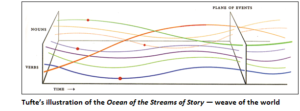
**
Have patience with me: Omar Ali has invited me to post here, an honor I greatly appreciate, and I am introducing myself.
I’m an outsider. I’m your guest, and I only just arrived.. To be precise, I’m a Brit, resident in the United States:

If I’m to write on BrownPundits, I need to you know how ignorant I am in many respects, before I shed some of what knowledge I do possess — and also to focus myself in the Brown direction, because this place is devoted to “a discussion of things brown” — and while I’ll no doubt wander far afield as I post, I want to acknowledge and honor the purpose of this blog as I introduce myself here.
**
My interest, my fascination, my obsession even, is with the weave of the world. And indeed, if my friends Omar Ali, Ali Minai, and Hasan Asif can be any indication, the Punditry of Brown extends intellectually across all of history, geography and genius, to encompass the world of ideas and the world world to which the ideas refer in their combined entirety..
And thus the weave of the thing. That’s how the Kathasaritsagara, or Ocean of the Streams of Story, comes in to my story. Somadeva Bhatta’s concept of the oceanic streams of story caught Salman Rushdie’s eye, and Rushdie reference to it —
He looked into the water and saw that it was made up of a thousand thousand thousand and one different currents, each one a different colour, weaving in and out of one another like a liquid tapestry of breathtaking complexity; and Iff explained that these were the Streams of Story, that each coloured strand represented and contained a single tale. Different parts of the Ocean contained different sorts of stories, and as all the stories that had ever been told and many that were still in the process of being invented could be found here, the Ocean of the Streams of Story was in fact the biggest library in the universe. And because the stories were held here in fluid form, they retained the ability to change, to become new versions of themselves, to join up with other stories and so become yet other stories; so that unlike a library of books, the Ocean of the Streams of Story was much more than a storeroom of yarns. It was not dead, but alive.
— it’s a universal mapping of the sort that enchants the likes of Jorge Luis Borges and Umberto Eco, librarians both, encompassing the realm of human thought in narrative terms. And it’s one subcontinewntal form of the universal map, or model, or metaphor — the Net of Indra in the Avataṃsaka Sutra would be another.
Outside the subcontinent — but well within the compass of Brown Punditry– there are other such metaphors for the whole of the whole. Teilhard de Chardin’s oosphere is another, as is Sir Tim Berners-Lee’s >World Wide Web, in which complex weave of thoughts we now find ourselves.
But for my own purposes, the most interesting figure of the whole, the universe as we are able to think and name it, conceptually speaking, is the Glass Bead Game as described by Hermann Hesse in his Nobel-winning novel of that name
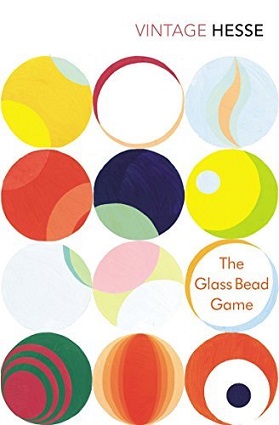
**
My own personal predilections run from cultural anthropology through comparative religion to depth psychology, and from violence to peace-making. But that’s a huge sprawl at best, and to bring all that into some kind of focus, to learn how to map that immense territory, and the vaster universe beyond it, I turn not just to strong>Hesse’s novel, but particularly to the Game which he describes in that book:
The Glass Bead Game is thus a mode of playing with the total contents and values of our culture; it plays with them as, say, in the great age of the arts a painter might have played with the colors on his palette. All the insights, noble thoughts, and works of art that the human race has produced in its creative eras, all that subsequent periods of scholarly study have reduced to concepts and converted into intellectual values the Glass Bead Game player plays like the organist on an organ. And this organ has attained an almost unimaginable perfection; its manuals and pedals range over the entire intellectual cosmos; its stops are almost beyond number. Theoretically this instrument is capable of reproducing in the Game the entire intellectual content of the universe.
You’ll see how that description covers much the same ground as Rushdie’s description of the Kathasaritsagara, and Edward Tufte’s image of the Ocean of Story which I’ve placed at the top of this post could also be a depiction of Hesse’s great Game.
There are many voices in the Ocean, and many voices in the Game, and they are interwoven: they form which a musician would recognize as a polyphony — their concepts and narratives at times clashing as in musical counterpoint, at times resolving, at least temporarily, in a refreshing harmony.
And what better model of the world can we contemplate at this moment, that one in which a multitude of at times discordant voices wind their ways to concord?
**
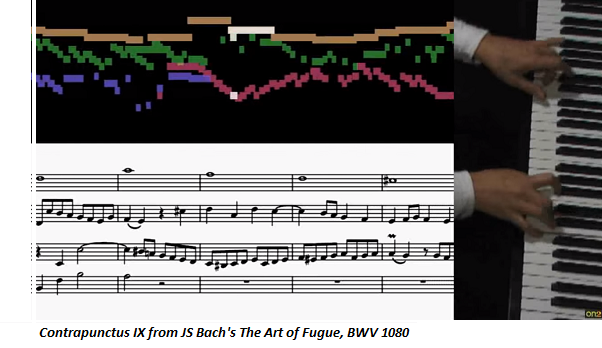
[ above: conventional score, bar-graph score and keyboard recordings of JS Bach, contrapunctus ix
Johann Sebastian Bach is the master of contrapuntal music, and, be it noted, a great composer for and improviser on the organ. And it is Bach whose music I listen to as I approach the business of modeling the world of ideas.
My mantram ca 1999/2000 was:<To hold the mind of Bach..
Where Bach devises and holds in mind melodies that collide and cohere, I want us to hold thoughts in mind — at times clashing thoughts — and learn to weave them into a coherent whole..
That’s my approach to making the Glass Bead Game which Hesse conceptualized, playable. And my playable variants on Hesse’s Game, the HipBone family of games, will be the topic of my next few posts — thanks to the kind inquiries of my BrownPundit friends, and Omar’s generous invitation to me to post here.
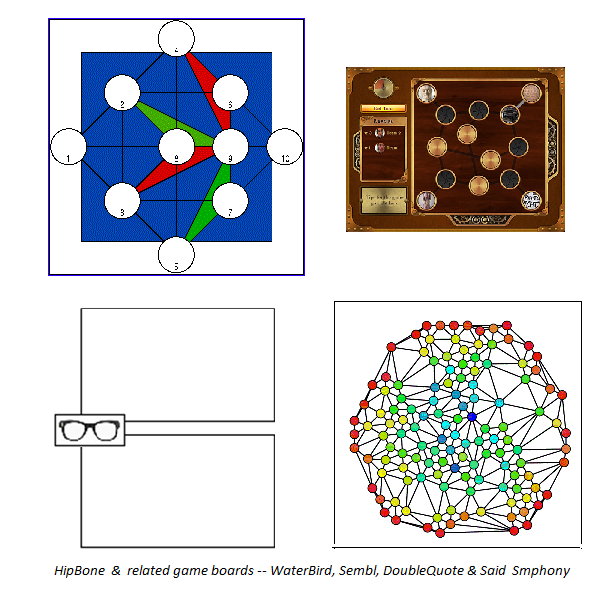
And perhaps, if you’re interested, we’ll play a few rounds of my games, or explore across the world of ideas and your and my interests, what I’ve come to think of as the HipBone style of thinking..
___________________________________________________
Charles Cameron is a poet and game designer, managing editor of the Zenpundit blog, and now an invited guest at BrownPundits. You can hear a discussion of the overlap between the Glass Bead Game and Artificial Intelligence featuring Omar Ali, Ali Minai and myself on this BrownPundits podcast — with an appreciative bow to Razib Khan.
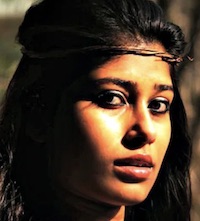 Probably the number #1 reason that the “Browncast” is of interest to me is that I can talk to people who are different from me in some deep and important manner. This podcast is a conversation with Amit, an Indian American who is doing a medical residency. Raised on the “best coast” of the USA, after some conventional dating travails, he has decided he will go the route of an “arranged” matched.
Probably the number #1 reason that the “Browncast” is of interest to me is that I can talk to people who are different from me in some deep and important manner. This podcast is a conversation with Amit, an Indian American who is doing a medical residency. Raised on the “best coast” of the USA, after some conventional dating travails, he has decided he will go the route of an “arranged” matched.

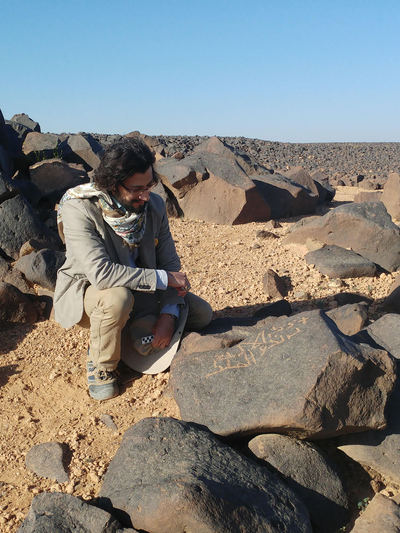 In this episode we talk to Dr Ahmed Al Jallad, Sofia Chair of Arabic Studies at Ohio State University. Dr Jallad is an expert on the languages and scripts of pre-Islamic Arabia. We talk about the origins of Arabic (most likely in the Northwest of the peninsula and not in the South as previously believed), the development of the Arabic script (most likely from Nabatean Arabic) and the inscriptions of the region (In the 6th Century CE the ones that do reference a religion mostly reference Christianity, not the pagan gods of pre-Islamic Arabia that dominate our vision of the “era of Jahiliya”..
In this episode we talk to Dr Ahmed Al Jallad, Sofia Chair of Arabic Studies at Ohio State University. Dr Jallad is an expert on the languages and scripts of pre-Islamic Arabia. We talk about the origins of Arabic (most likely in the Northwest of the peninsula and not in the South as previously believed), the development of the Arabic script (most likely from Nabatean Arabic) and the inscriptions of the region (In the 6th Century CE the ones that do reference a religion mostly reference Christianity, not the pagan gods of pre-Islamic Arabia that dominate our vision of the “era of Jahiliya”..
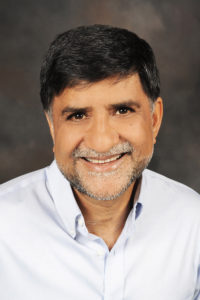
 This week we have a twofer about education in Pakistan. In this episode Omar and Zachary talk to
This week we have a twofer about education in Pakistan. In this episode Omar and Zachary talk to 



